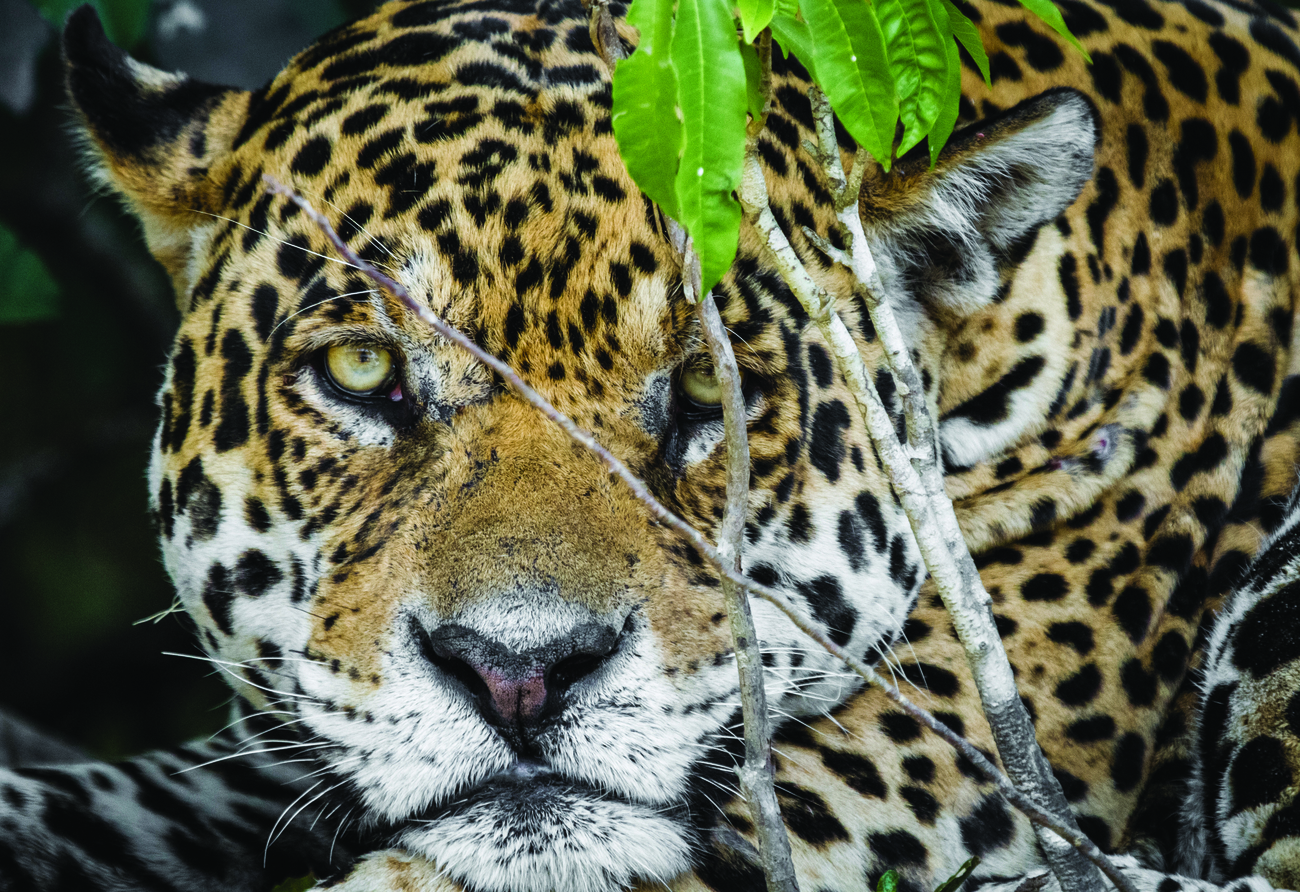Policy Conventions & Agreements - Global
Protection for wildlife & habitats is preserved in global agreementsmajor boost for jaguar conservation as iconic but threatened species is afforded vital protection
major boost for jaguar conservation as iconic but threatened species is afforded vital protection

(Gandhinagar, India – 20 February 2020) – There was a big win for jaguars today at the 13th Conference of the Parties (CoP) of the UN Convention on the Conservation of Migratory Species of Wild Animals (CMS) in Gandhinagar, India, as governments approved listing the species for the first time to protect it across its entire range.
Urgent action is vital to save the jaguar, with 40% of its habitat having been lost over the last 100 years. While also a target of illegal wildlife trade, further destruction of habitat and critical migratory corridors likely poses the greatest threat to the survival of this iconic animal - the largest native cat in the Americas and third largest big cat in the world.
Attending government representatives of the 130 member parties approved by consensus the proposal to list the jaguar on both appendices of CMS to offer protections for the species, which ranges across 19 states from the US down to Argentina and almost every country in between. Appendix I affords the highest protection possible, with Appendix II requiring countries to coordinate conservation efforts for the species.
Matt Collis, IFAW Director, International Policy, and head of IFAW’s delegation at CMS, welcomed the decision, saying: “This is an important conservation win for jaguars. IFAW was strongly supportive of the proposal to provide protection for this animal, which is emblematic of the problems facing many migratory species. Halting the loss of habitat and destruction of migratory corridors is vital, especially for isolated and endangered populations, if the jaguar is to survive across the Americas.
“CMS offers a unique opportunity to ensure we step up to protect these animals across their range. It is critical to have these safeguards in place for this species if we are to help sustain it in both the shorter and longer term.”
An Appendix I and II listing will encourage greater regional cooperation, particularly for management of transboundary populations, maintenance or creation of key migratory corridors for isolated populations and prevent further jaguar habitat loss and population declines.
While the jaguar is classed as ‘Near Threatened’ globally, 13 range states have declared the jaguar to be Endangered, four Vulnerable and two have already suffered local extinctions. Co-proposed by six countries in Latin America, this was the highest ever number of co-proponents for a proposal at CMS, excluding those sponsored collectively by all EU member states. This demonstrates the strength of regional support for this flagship species.
The jaguar’s ‘Near Threatened’ global status is due to its assessment focussing on the largest and healthiest population in the Amazon. However, a 2018 study found that when IUCN Red List criteria are applied to the other 33 jaguar populations, they qualify as Endangered or Critically Endangered due to their small size, isolation and lack of sufficient management.
Collis added: “Jaguars typify the problems faced by large mammals crossing fragmented habitats between national borders. Studies have found at least 26 transboundary populations of jaguar – where regular movement across international boundaries can occur as the animals search for mates and food. Maintaining connections between small sub-populations of jaguars that move across borders is critical to protect them across their range and the place they call home.”
Half of the jaguar’s range states are parties to CMS. The future of many other migratory species will be affected by decisions taken at this meeting, which began on Monday and is scheduled to run until Saturday (22). Still to be considered for listing today is the critically endangered oceanic whitetip shark, after Asian elephants were approved by consensus for Appendix I listing earlier in the day.
For more information or to arrange interviews with IFAW experts in Gandhinagar please contact Clare Sterling on mobile +44 (0)7917 507717 or email csterling@ifaw.org. Skype interviews can be arranged on request.
Notes to Editors:
The jaguar Appendix I and II listing was proposed by Costa Rica, Argentina, Bolivia, Peru, Paraguay and Uruguay.
The purpose of CMS is to bring together countries to cooperate on how they manage and protect species, particularly endangered species, which are migratory and cross national boundaries. More information and documents on CMS are available here: https://www.cms.int/en/cop13
IFAW is tweeting updates from the proceedings via various accounts including @Action4IFAW http://twitter.com/action4ifaw
Images and footage will be available for media use.
About the International Fund for Animal Welfare (IFAW) - The International Fund for Animal Welfare is a global non-profit helping animals and people thrive together. We are experts and everyday people, working across seas, oceans and in more than 40 countries around the world. We rescue, rehabilitate and release animals, and we restore and protect their natural habitats. The problems we’re up against are urgent and complicated. To solve them, we match fresh thinking with bold action. We partner with local communities, governments, non-governmental organisations and businesses. Together, we pioneer new and innovative ways to help all species flourish. See how at ifaw.org
Related content
Blog
big wins for wildlife at major UN conference for migratory species
big-wins-convention-on-migratory-speciesPress releases
urgently needed protection granted to shark species on the brink of extinction
Read morePress releases
conservation win for endangered Asian elephants as vital protection is awarded
Read moreOur work can’t get done without you. Please give what you can to help animals thrive.